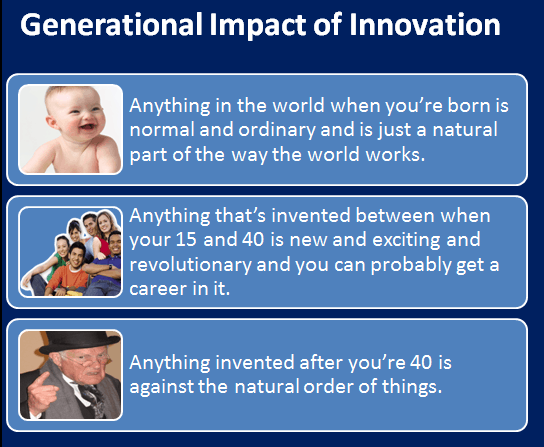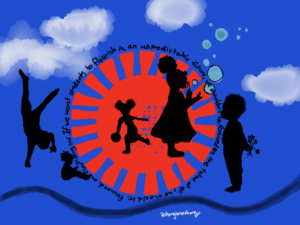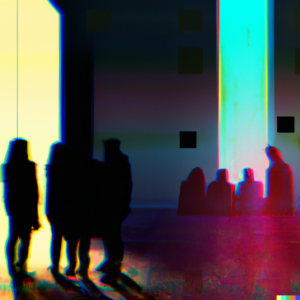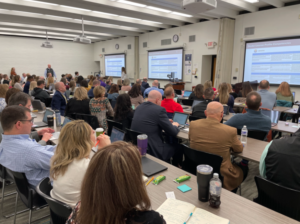Z Future Is Here!
Generation Z, that group born between 1992 and 2010, is making a greater impact on society than any generation in the past. This group is the first to be born in the age of the Internet. They do not know a world without it. Thanks to the ubiquity of high-speed Internet, smartphones, and tablets, their world is an on-demand, information age that they are actively helping shape before they’re even teenagers.
They’re a tough generation, too – a bit more hardened than the Xs and Ys who came before them. The Zs see foreclosed homes in their neighborhoods. They know someone with a parent who can’t find a job. They know someone who’s been to war. They’re not sure where the tradition of taking off one’s shoes before boarding an airplane started.
The average age of a Gen Z is ten. When I was ten, I had slightly less than zero impact on the world at large. For instance, only my parents were aware of my dislike for Tang, that orange drink that astronauts apparently brought back from outer space. The makers of Tang were never aware of my dislike for their product. In fact, they may have never received any feedback from a ten-year-old. So Tang had a long, profitable run at breakfast tables even though I didn’t know anyone who actually liked it.
That’s not Gen Z, though. Not being “heard” is not one of their problems. Thanks to social media’s “likes” and “plus 1” buttons, Gen Zs express their opinions online every day. In addition, they are actually shopping online everyday thanks to Amazon cards, Xbox cards, iTunes cards, etc. And everyone’s taking note, from other Gen Zs, to parents, to advertisers, to businesses. They have a powerful voice that now truly counts. Studies show that Gen Zs are more influenced in their shopping trends by other Gen Zs than by advertising. They want to see the +1s of their peers, and they, more importantly, want to be the first to +1 something. That’s fantastic news for startups and other newcomers. That simple curation is very important to the Gen Zs.
This is a dramatic change for marketers and advertisers. So much so, that they are calling Gen Zs the “brand busters.” Naturally, they are focusing a tremendous amount of time and spending a great amount of money studying Gen Zs. The world is catering to this powerful group, trying to crack the code on how they operate and then reach them in a meaningful way. That sounds like a pretty solid plan, but not everyone is on board.
How are we, the educators, dealing with this first generation born in the age of the Internet? Usually we meet them at the door and tell them all electronic devices are off limits. We then give them an inflexible schedule where one size fits all. Because that’s exactly how the world will never be ever again. “On demand” and “access” are conditions that we’ve not adapted to.
In terms of technology and internet use, we’ve managed to align ourselves more with the way prisons are run than the way in which coffee shops, Wall Street, universities, government agencies, coal mining companies, service industries, the military, family homes, Hollywood, off-shore drilling, healthcare professionals, fine arts, entertainers, hair stylists, and road crews operate. Schools have become so artificial, that they are approaching irrelevancy for most students.
This is a true generational divide between educators and students. One group’s advanced technology is another group’s common, everyday world. According to Moore’s Law, that divide will only get bigger. There are even studies that show generational gaps between close siblings:
Take a look at technology’s generational divide on this chart:

In short, here’s the problem: Generation X has entrusted the Baby Boomers to prepare Generation Z for the jobs that Generation X will create in the future. M.C. Escher would find that a challenge.
So if we want to help the Zs, we have to evolve ourselves. We have to adapt. We have to study them and rewire our own brains.
I heard a student say this last week: “As long as Google’s around, why do I need school?”
We know, of course, that there’s a lot more to school than the links that Google can provide, right? Well, at least there should be.
A teacher might find that this is a challenging, 21st century assignment: “Create a Powerpoint presentation that highlights the history of Shakespeare’s theatre.”
Students will use technology to create the presentation. This should be a real challenge for them and keep them busy. Mission accomplished.
Students will be delighted with this assignment, no doubt. They know, though, that they can go to Google’s advance search, type in “history of Shakespeare’s theatre,” and then choose PPT as the file type. All results will be PowerPoints that others have already uploaded to the net. Assignment done in seven seconds. No challenge. No busy. Mission fail.
If we studied the Gen Zs like the marketers do, we would know the assignment should be something like this: “Download four Powerpoint presentations on the history of Shakespeare’s theatre from the net. Explain what is good and bad about each. Rank them 1 through 4. Remix into your own presentation, and give proper credit to each. Create one new slide, upload to the net, and your classmates will help evaluate.”
Now we have them curating, creating, remixing, and opining in a much more relevant way than before. In addition, if they are doing the work just for their teacher, they will make sure that it’s “good enough.” But if they’re doing it for their peers, they will make sure it’s “GOOD!”







0 Comments
Leave a Comment
Your email address will not be published. All fields are required.